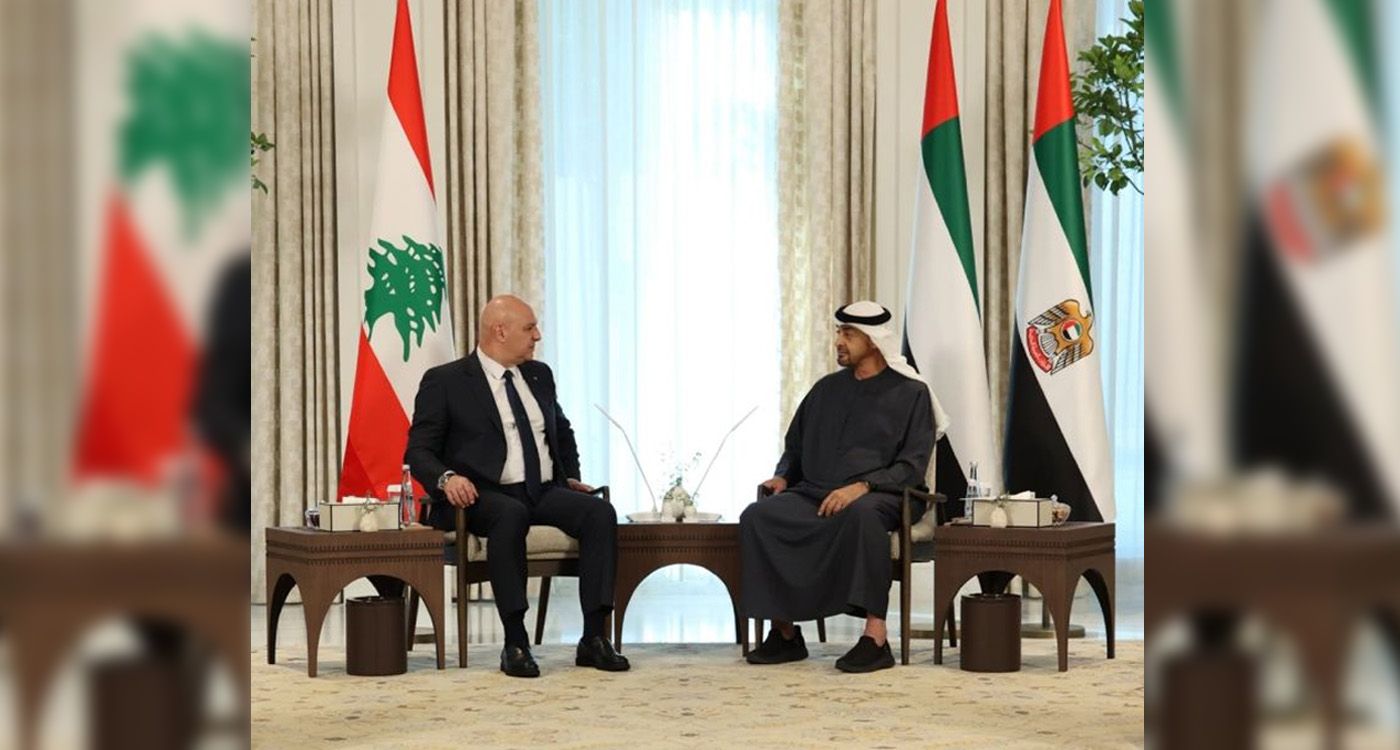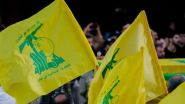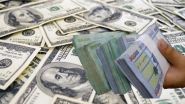
President Joseph Aoun and Emirati President Sheikh Mohammad bin Zayed Al Nahyan, who is also the Emir of Abu Dhabi, agreed to deepen and expand bilateral relations during a summit held on Wednesday in the UAE capital.
Aoun arrived in Abu Dhabi on Wednesday to begin a two-day official visit to the United Arab Emirates. Upon his arrival, he held a high-level meeting with Sheikh Al Nahyan, where discussions focused on regional cooperation and the role of the Lebanese expatriate community.
During the summit, President Aoun expressed his appreciation to the UAE for hosting approximately 190,000 Lebanese nationals. He praised their contribution to Emirati society, calling them “a vital bridge between the two countries.”
He added, “We are grateful for the hospitality extended by the UAE. Our citizens living here are contributing to the country’s prosperity, and their work is a real force behind Lebanon’s ongoing renaissance.”
Aoun reiterated this sentiment in a subsequent interview with Arab media outlets, emphasizing the importance of the Lebanese community abroad. “Nearly 190,000 Lebanese in the UAE live in safety and dignity. They continue to support their families in Lebanon financially,” he said.
The President also held discussions with Sheikh Al Nahyan on the domestic political and economic landscape, and the state’s renewed efforts to control arms within its borders. Aoun acknowledged the difficulties Lebanon is facing but stated that “the past is behind us today.” He said the Lebanese state is gradually restoring its sovereignty and governance capacities. “Lebanon, after a long period of crisis, is regaining its equilibrium. We are working together for a better future,” he added, emphasizing the importance of cooperation among all state institutions.
Talks on Embassy Reopening
Aoun also emphasized the inseparable link between Lebanon’s internal stability and that of the wider Arab region. “We are part of a greater Arab family. If one member suffers, we all suffer,” he said, reaffirming the principle of regional solidarity as key to Lebanon’s future.
In turn, Sheikh Mohammad bin Zayed Al Nahyan reiterated his country’s firm support for Lebanese sovereignty and institutions. He highlighted the importance of preserving Lebanon’s unity and territorial integrity, stating, “The Emirates will continue to support Lebanon in its quest for stability, peace and development. We firmly support Lebanon’s unity and the security of its borders.”
The Emirati President also voiced his solidarity with the Lebanese people amid the country’s continuing challenges and emphasized the role of Arab cooperation in addressing shared crises. “Lebanon, with its rich heritage and exceptional human potential, deserves to regain its position among the prosperous nations of the region,” he said.
The reopening of the Emirati Embassy in Beirut, which has been closed since 2021, was also on the summit agenda. Sheikh Al Nahyan expressed a desire to restore diplomatic relations on a solid foundation. “We believe that reopening the embassy will signal our commitment to Lebanon and our willingness to help it overcome its difficulties,” he stated.
Weapons and Sovereignty
President Aoun briefed his host on Lebanon’s ongoing efforts to reassert full sovereignty, particularly in South Lebanon.
Speaking later to the Arab Media Group in Abu Dhabi, Aoun emphasized that Lebanon had made an irreversible decision to limit weapons possession exclusively to state institutions. “The withdrawal of weapons will extend across all Lebanese territory, but our top priority remains dismantling paramilitary structures in the south,” he said, in reference to Hezbollah’s arsenal and in line with the ceasefire arrangement with Israel.
He also addressed the issue of arms held by Palestinian groups, calling for the surrender of all medium and heavy weaponry. Aoun noted that the Lebanese Army now controls approximately 80 to 85% of southern Lebanon but said its full deployment is still blocked by Israel’s occupation of five strategic border points. He appealed to Lebanon’s allies to help resolve this standoff through diplomacy. “The Lebanese are exhausted by war. Our only path forward is through diplomacy, even if it takes time,” he insisted.
Aoun revealed that Palestinian President Mahmoud Abbas is expected to visit Beirut soon, with the question of Palestinian weapons on the agenda. “This is a critical issue that cannot be overlooked,” he said.
Closing his remarks, the president affirmed that all his actions are guided by conscience and national interest. “Civil peace is the key to everything. Any internal conflict must be resolved through dialogue and within the framework of the state,” he said, stressing his coordination with Parliament Speaker Nabih Berri and Prime Minister Nawaf Salam in addressing Lebanon’s internal files.



Comments